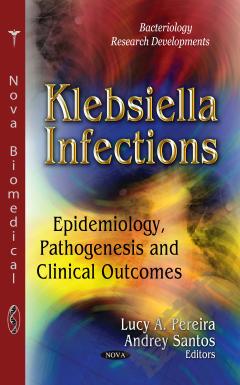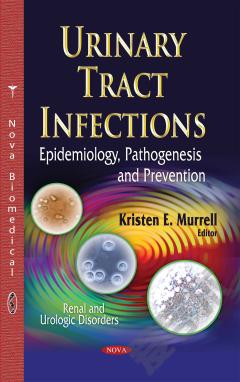Klebsiella Infections: Epidemiology, Pathogenesis and Clinical Outcomes
Bacteria belonging to the genus Klebsiella have a dual role in human pathophysiology. Some of the strains are potent opportunistic pathogens capable of causing severe illnesses, whereas a majority of the klebsiellas belong to our normal flora, particularly in our alimentary tract. In this book, the authors present current research in the study of the epidemiology, pathogenesis and clinical outcomes of klebsiella infections. Topics discussed include interactions of klebsiella sp. with other intestinal flora; C-9154 derivatives with potent in vitro biological activity against klebsiella pneumoniae; treatment strategies for infections caused by carbapenem resistance and pandrug resistant klebsiella isolates; clinical characteristics of klebsiella pneumoniae pneumonia in alcoholic patients and virulence factors of the isolates; klebsiella pneumoniae endogenous endophthalmitis; klebsiella pneumoniae liver abscess; virulence mechanisms of the klebsiella; and multi-drug resistant klebsiella pneumoniae and K. oxytoca strains in Russian hospitals.
{{comment.content}}








 京公网安备 11010802027623号
京公网安备 11010802027623号